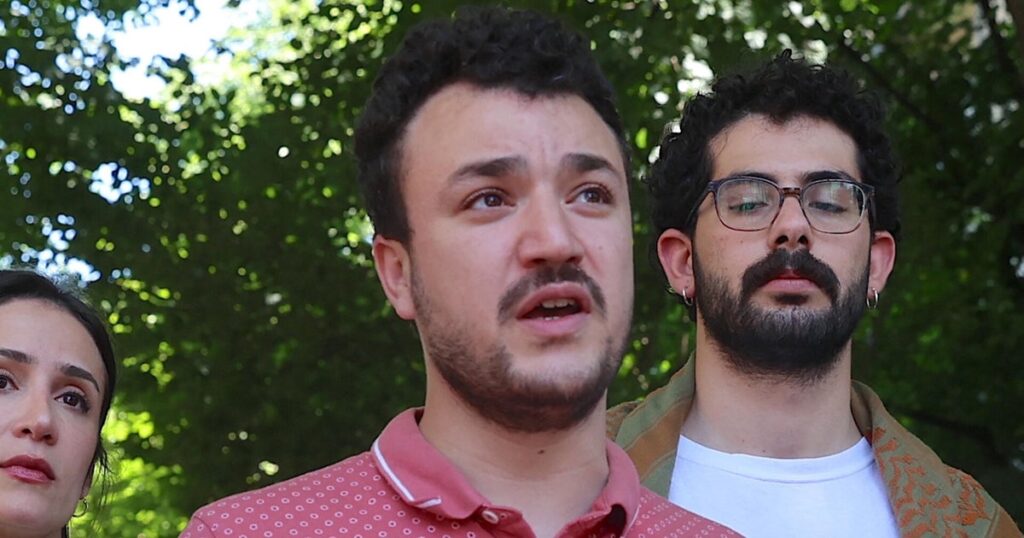ICE officials and a prison contractor have refused to grant a contact visit between Mahmoud Khalil and his family, according to the American Civil Liberties Union, denying him the chance to hold his newborn son. The boy was born last month while Khalil, a Columbia University graduate student and Palestinian activist, remained in ICE custody in Louisiana.
“After flying over a thousand miles to Louisiana with our newborn son, his very first flight, all so his father could finally hold him in his arms, ICE has denied us even this most basic human right,” his wife, Noor Abdalla, said in a news release from the nonprofit civil rights organization on Wednesday. “This is not just heartless. It is deliberate violence, the calculated cruelty of a government that tears families apart without remorse.”
The ACLU said the refusal by ICE and the prison contractor GEO Group came after multiple requests from Khalil’s legal team pointing to federal policies that encourage contact visits between children and their detained parents. Officials, they said, cited “a blanket no-contact visitation policy at the Central Louisiana ICE Processing Center (CLIPC) and unspecified ‘security concerns’ relating to the presence of a mother and newborn baby in an unsecure part of the facility.”
Khalil, a 30-year-old legal permanent resident, was taken into custody in early March at his Columbia-owned apartment in New York City. He was a vocal member of last year’s campus protests over the war in Gaza.
The Trump administration accused Khalil of engaging in pro-Hamas activities, arguing he can be deported on foreign policy grounds using a rarely used provision of the Immigration and Nationality Act, but did not present specific evidence against him. Khalil’s attorneys have disputed the allegation and argue his detention was unlawful.
The administration later accused Khalil of immigration fraud, which his lawyers also dispute.
An immigration judge in Louisiana last month permitted the administration to continue with its effort to deport Khalil, ruling that the determination that Khalil poses “adverse foreign policy consequences” for the U.S. is “facially reasonable.”
Khalil’s detention is part of the Trump administration’s targeting of student protesters with green cards or student visas, which has raised questions about the First Amendment rights.
Renee Anderson and
Camilo Montoya-Galvez
contributed to this report.

